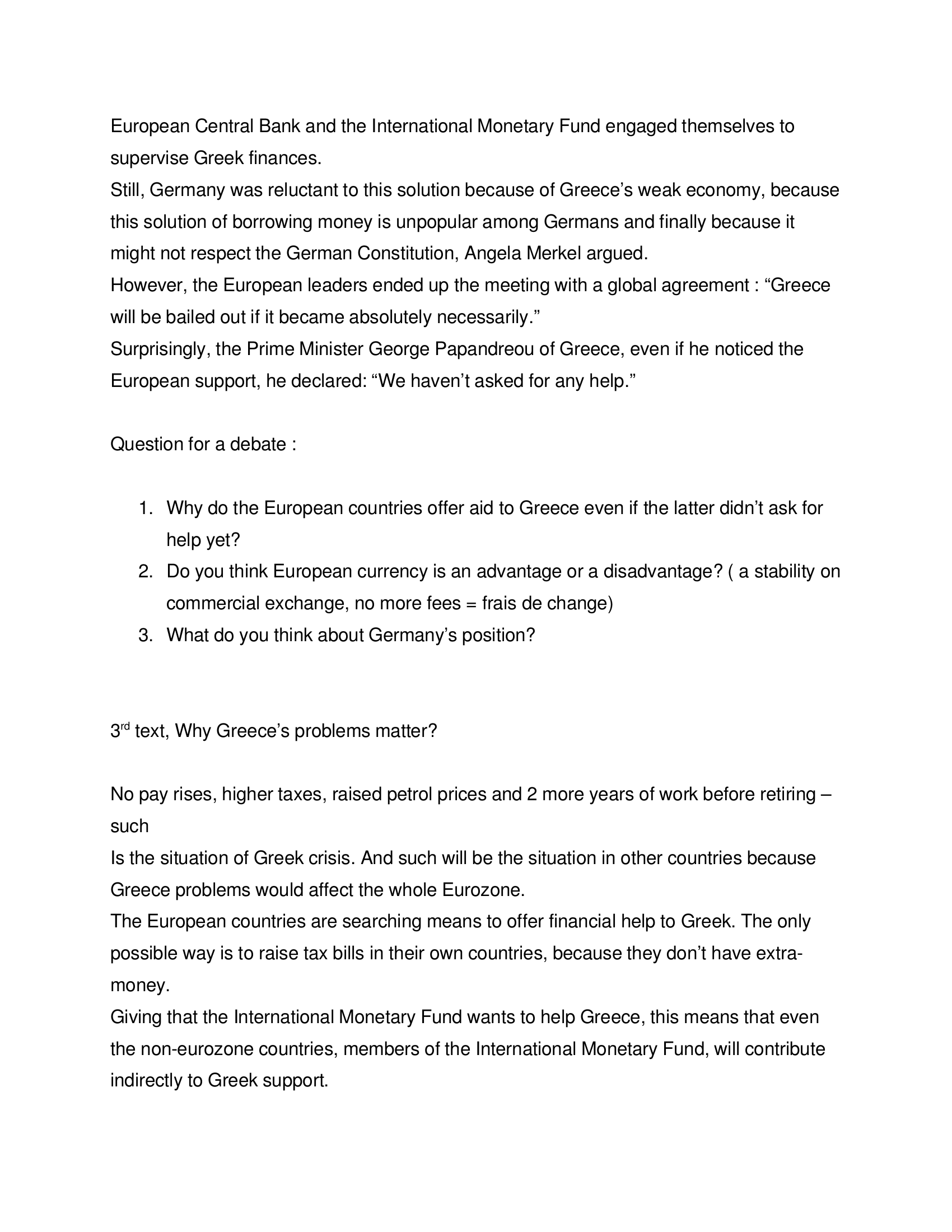la crise économique en Grèce
Publié le 05/11/2012
Extrait du document
«
European Central Bank and the International Monetary Fund engaged themselves to
supervise Greek finances.
Still, Germany was reluctant to this solution because of Greece’s weak economy, because
this solution of borrowing money is unpopular among Germans and finally because it
might not respect the German Constitution, Angela Merkel argued.
However, the European leaders ended up the meeting with a global agreement : “Greece
will be bailed out if it became absolutely necessarily.”
Surprisingly, the Prime Minister George Papandreou of Greece, even if he noticed the
European support, he declared: “We haven’t asked for any help.”
Question for a debate :
1.
Why do the European countries offer aid to Greece even if the latter didn’t ask for
help yet?
2.
Do you think European currency is an advantage or a disadvantage? ( a stability on
commercial exchange, no more fees = frais de change)
3.
What do you think about Germany’s position?
3 rd
text, Why Greece’s problems matter?
No pay rises, higher taxes, raised petrol prices and 2 more years of work before retiring –
such
Is the situation of Greek crisis. And such will be the situation in other countries because
Greece problems would affect the whole Eurozone.
The European countries are searching means to offer financial help to Greek. The only
possible way is to raise tax bills in their own countries, because they don’t have extra
money.
Giving that the International Monetary Fund wants to help Greece, this means that even
the noneurozone countries, members of the International Monetary Fund, will contribute
indirectly to Greek support..
»
↓↓↓ APERÇU DU DOCUMENT ↓↓↓
Liens utiles
- La crise économique de 29
- les alternatives à la crise en grèce
- Une crise économique n'a-t'elle que des aspects négatifs ? Faut-il vraiment la redouter ?
- crise économique de 1929.
- crise économique & économie.

































